The cosmetics industry is growing rapidly, and skincare specifically is growing more than other sectors of the cosmetics world. It’s easy to see this vast growth by taking a look at Youtube, Instagram, or any number of other social media sites. Looking closely, you’ll see that some of the most popular influencers on these social media sites are promoting products with an ingredient called CBD. What is CBD, and why has it suddenly shown up in all kinds of cosmetic products? CBD stands for “cannabidiol”, a type of compound found in the cannabis plant, collectively known as “cannabinoids”. This article will serve as a primer on the role of CBD in skincare; what exactly CBD is, what it’s good for, why it’s good for skincare specifically, and how you can use it as part of your routine.
What Is CBD?
Before diving into the world of CBD as a skincare additive, it’s important to have a good idea of what CBD really is! Many people’s first reaction to CBD is suspicion, based on the misconception that CBD is no different from the cannabis it’s derived from. Of course, this is not true, as cannabidiol (CBD) is only one of many compounds found in cannabis called “phytocannabinoids”. These compounds are similar to compounds found in our own bodies that are called “endocannabinoids”. While research is still underway, scientists currently believe that CBD derived from hemp or cannabis interacts with our body’s endocannabinoid system by encouraging the production of endocannabinoids, which in turn affect pain sensation, anxiety, appetite, and memory function.
Another point of confusion regarding CBD for many interested people is the legality of CBD. Yes, CBD is a product of the cannabis plant, which is federally listed as a Schedule I drug. Fortunately for the prospective CBD consumer, the passage of the 2018 Farm Bill allowed for some serious re-categorizing of cannabis and cannabis products. The most important part of the 2018 Farm Bill for CBD was the change in regulation regarding hemp. Hemp is a term with a long history of being used specifically in reference to cannabis varieties grown for industrial use. The 2018 Farm Bill allowed cannabis to be grown in the United States as long as the THC levels in the plants remain under 0.3%. Hemp is now grown in the United States for fibers used in rope, clothing, paper, and of course CBD!
Although CBD technically comes from cannabis, almost all CBD sold in the United States comes from hemp, a variety of cannabis that by US law must contain less than 0.3% tetrahydrocannabinol (THC). THC is the cannabinoid present in cannabis that’s responsible for the psychoactive “high” that most people associate with cannabis. What this means for you is that you won’t be impaired or feel high from any CBD product available for the general public.
Now that you have a good idea of what exactly CBD is, and you’ve decided to start looking around at what products are available, you’ve likely been stumped by the labeling: full-spectrum, broad-spectrum, isolate? It’s not always apparent what the labeling on a product means. These three categories are ways that purities of CBD are differentiated. When hemp is processed to obtain CBD, the entire group of phytocannabinoids is also present. Full-spectrum products are those that use the entire spectrum of cannabinoids that have been processed from the hemp plant. Preliminary research shows an increased level of effectiveness when CBD is combined with other cannabinoids, an effect called the “entourage effect”. Unfortunately, full-spectrum products usually contain some trace amounts of THC, so people subject to routine drug testing may want to use other products. Broad-spectrum products are similar to full-spectrum, but these have had the THC fully filtered out. CBD isolate is the purest possible form of CBD, with no other phytocannabinoids present.
What Makes CBD Good For Skincare
The list of uses for CBD is seemingly endless and continues to grow! It is true that there are people online exaggerating the beneficial qualities of CBD, but the list of proven benefits is impressive! While clinical studies of CBD are limited due to its relatively new appearance on the market, the clinical studies that have been published show very promising results. Research shows that CBD can be effective for several mental and physical health conditions.
Some of the conditions CBD has been shown to be helpful for are some of the same conditions that cause common skin conditions. Anxiety, stress, and inflammation are all reasons that you may be having problems with your skin, and CBD is effective at treating all three of these!
Acne-prone skin can be incredibly troublesome, making you feel uncomfortable in social situations or even becoming harmful if a blemish becomes infected. Medical professionals know that acne is an inflammatory condition, with multiple triggers that can include stress. This makes CBD an excellent choice to include in your acne-relieving skincare routine. Research on CBD shows that CBD has powerful anti-inflammatory effects, and can even have the potential to calm your skin’s sebum production, reducing the amount of excess oil that can cause acne.
Another common set of issues people target with their skincare routine is the effects of aging. Wrinkles, sagging skin, and dullness are just a few of the things that can happen to your skin as you get older. Antioxidants are recommended by most dermatologists as the first line of defense against the effects of aging, and luckily for the CBD consumer, hemp is packed with antioxidants. The antioxidants in CBD combine with the anti-inflammatory properties to reduce redness, smooth wrinkles by increasing skin elasticity, and improve skin texture. When applying CBD products to help improve your skin’s elasticity, don’t be stingy! Many of the spots that need it most are easy to miss, like the neck and the skin under the eyes. Just be careful when using skincare products near sensitive areas like your eyes.
People with sensitive skin often struggle when trying to find skincare products that won’t irritate their skin and end up causing more damage than the issues they’re trying to treat. Luckily for sensitive skinned folks, CBD oil is known to have some serious soothing powers. It’s used to calm itchy skin, helping to reduce redness and flaking. Even conditions as persistent as eczema and psoriasis can be relieved with CBD. Adding CBD to your daily sensitive skin regimen can help your skin relax regardless of what’s causing your sensitivity.
One of the most damaging things that our skin is exposed to on a daily basis is the sun. Yes, people love the bronzed look that sun exposure and tanning can achieve, the ultraviolet rays that sunlight contains can cause premature aging, wrinkles, and even skin cancers when exposed to high levels. CBD sunscreen products can block the UV rays from reaching your skin and if you do happen to miss a spot when applying, the anti-inflammatory effects can help soothe a sunburn.
We’re lucky that when our skin is damaged, it’s able to repair itself by scabbing. Unfortunately, when the damage is serious enough, the skin will create scar tissue. Of course, this is a natural process and nothing to be embarrassed about, but people can become uncomfortable about scars in visible places. This is yet another issue that the healing properties of CBD can help with! Some studies have shown that topical CBD treatment can improve the elasticity of even scar tissue skin!
What Should I Know Before Buying CBD Skincare Products?
Before buying your CBD beauty products, you’ll want to check the label. Some savvy retailers will market hemp seed oil in a similar way that CBD is marketed, but these oils are not the same. Hemp seed oil does contain some of the same nutrients as CBD products, but only contains trace amounts of CBD. Laws can differ from state to state, so it can be difficult to tell who’s legit and who isn’t. Checking the label should give you a clear idea of how much CBD, if any, is in the product. Checking the label will also help you understand what other ingredients are present. This is especially important for people with allergies, but there are some common ingredients that even people without allergies should avoid. Be sure to avoid products that have aluminum, mineral oil, parabens, and phthalates. These ingredients can clog your pores and cause even more problems like acne, or can enter the bloodstream and cause many other problems. If you’re not sure if a product is right for you, then we recommend contacting a dermatologist to discuss further.
When looking at CBD skincare products, you’ll likely want to focus on two different styles of CBD; distilled oil, and topicals. Oils are pretty simple and are applied much the same as other oils sold for cosmetic purposes, like jojoba, argan, or coconut oil. Topicals are a little more complicated; as there are a number of different kinds sold. Thankfully they are also applied in the same way that non-CBD products are applied! Creams and lotions function the same, as do bath bombs and rollers, but just be sure to keep your dosage in mind.
With all this knowledge, now you can enjoy a CBD skincare shopping spree armed with all the information you need to make the right purchases for you and your skin!


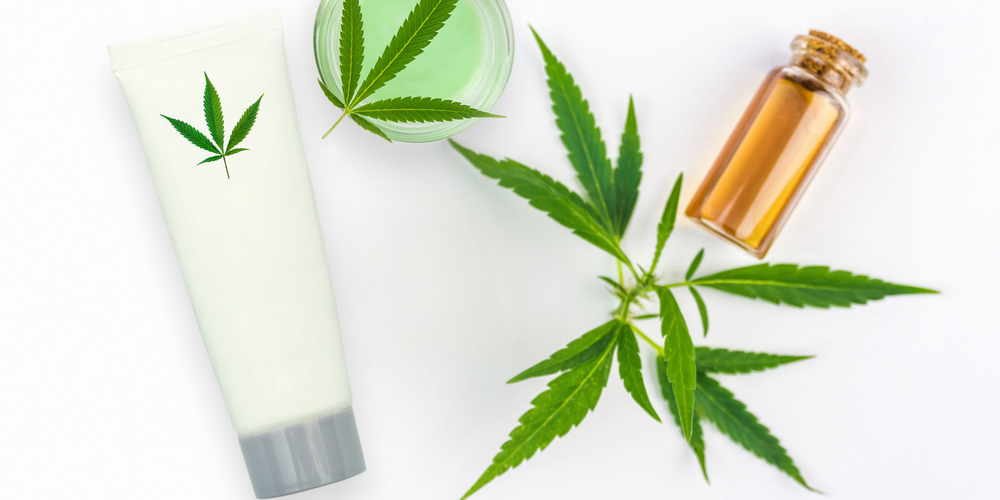
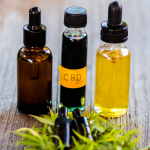
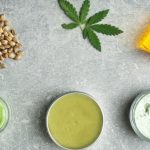
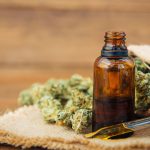
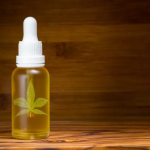
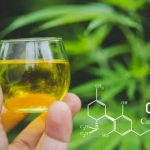
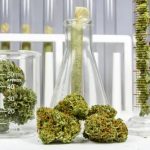
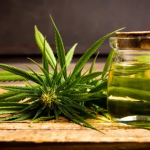
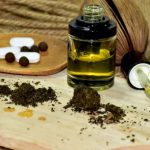
Leave A Message